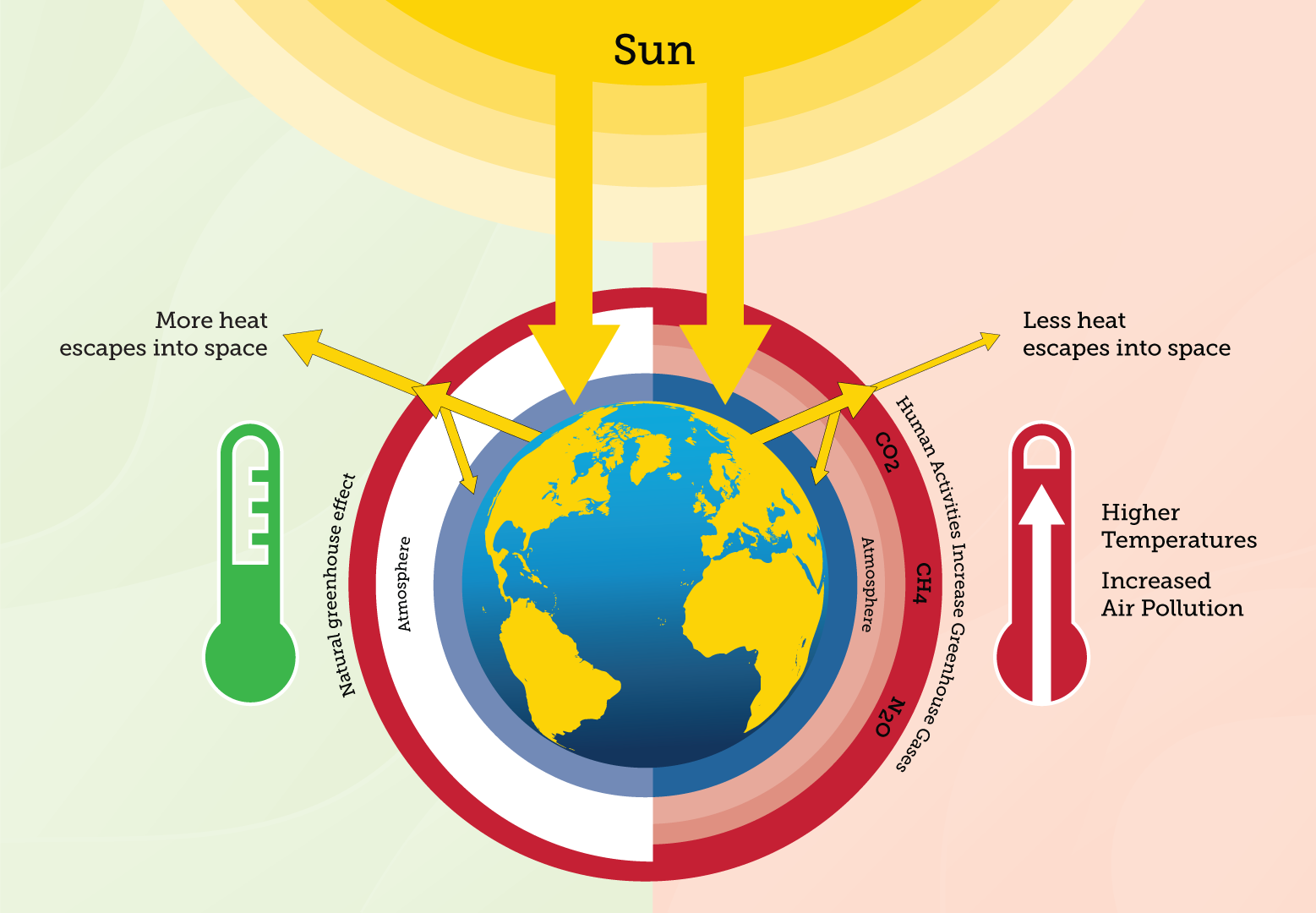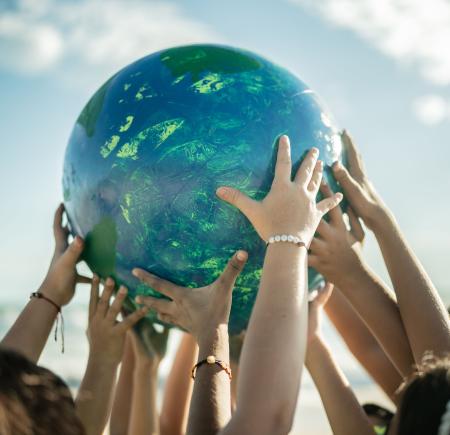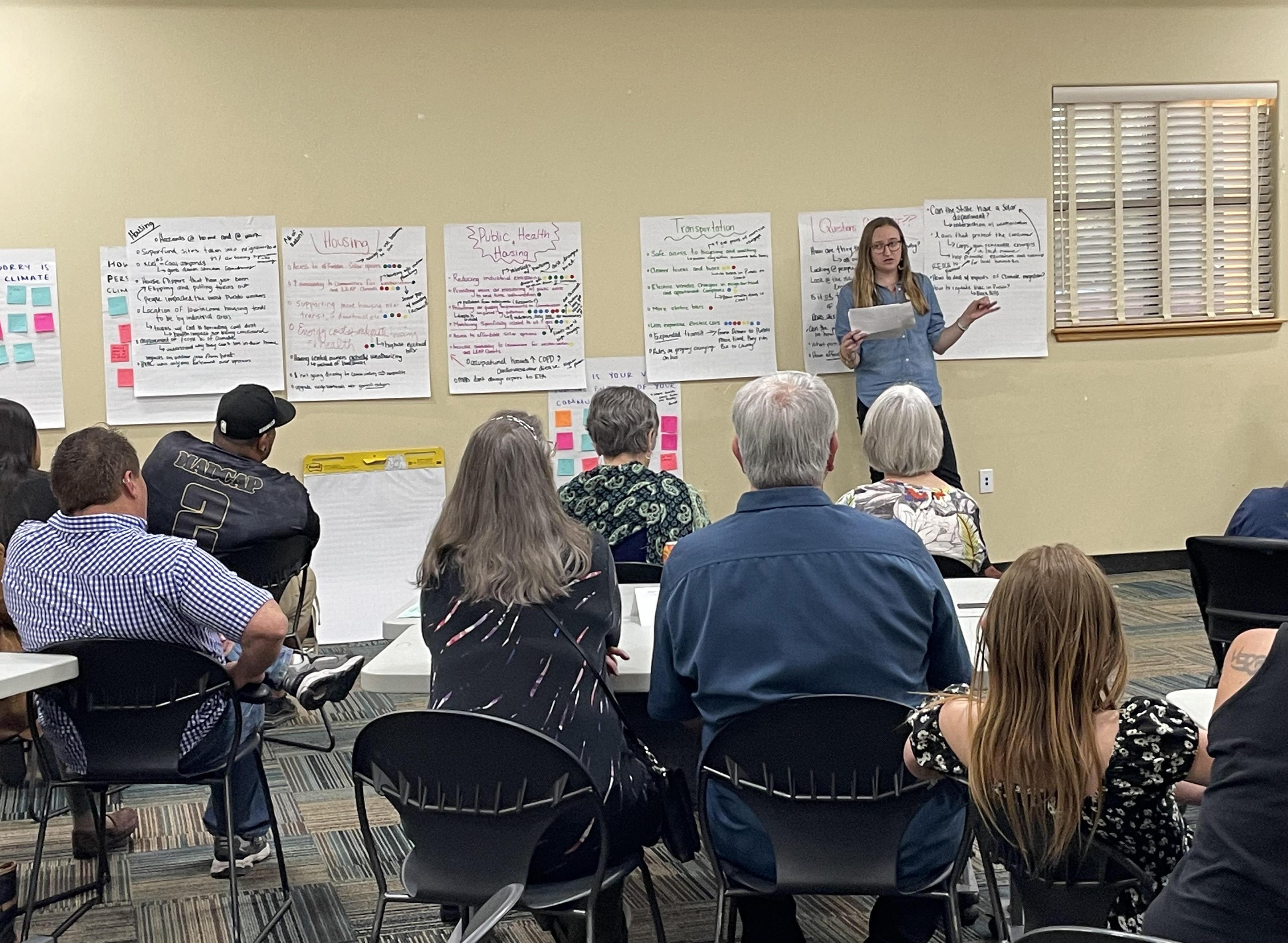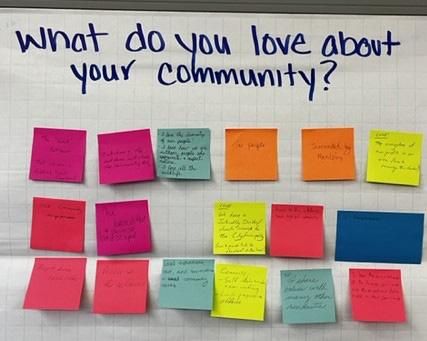Learn About Climate Change
Learn About Climate Change
Is the climate changing?
Yes.
The Earth’s climate has seen changes since the dawn of time. This can happen naturally through shifts in our orbit around the sun, solar cycles and fluctuations in solar radiation, and volcanic activity. Human activity can also impact the planet’s climate.
Since the late 19th century, global temperatures have risen about 2 degrees Fahrenheit, and have continued to increase at faster rates through the mid-20th century, according to NASA. In fact, during the past 50 years alone, average global temperatures have increased about 1.5 degrees Fahrenheit. Colorado’s climate has been slightly above these global changes, as the state’s average temperature has increased over 2 degrees Fahrenheit in the past half-century.
What is causing climate change?
The scientific community is in practical consensus that humans are significantly contributing to climate change. According to a comprehensive 2016 study, 97% of scientific papers on this subject found “that humans are causing recent global warming.” Many major scientific organizations, including NASA, the American Association for the Advancement of Science, the American Geophysical Union, American Meteorological Society, and the U.S. National Academy of Sciences have all concluded that humans are a primary driver of the climate change we are currently experiencing.
Adding more greenhouse gases traps in more heat, meaning that less heat will escape to space. This is supported by observations that show our lower atmosphere warming, while the upper atmosphere is cooling.
What is climate change?

Global climate change refers to a long-term change in temperatures, either warming or cooling. Human-caused climate change refers to the more rapid increases in temperature that are currently taking place, as a result of increasing greenhouse gas emissions. The greenhouse effect is an important component of our atmosphere that keeps our temperatures at a pleasant and livable level. But, as we add more carbon dioxide and other greenhouse gases to the atmosphere, the greenhouse effect increases. Essentially, we’re “putting a heavier blanket” over the Earth, trapping in more heat. This is similar to when your body has a fever and you experience an increase in symptoms throughout your body. The Earth’s higher temperature is resulting in an increase of “symptoms” to the Earth’s oceans and lands.
What is Climate Equity?
Climate equity is the goal of recognizing and addressing the unequal burdens made worse by climate change, while ensuring that all people share the benefits of climate protection efforts. Coloradans are already feeling the impacts of climate change and there is evidence that it affects some people more than others. Climate change is a “threat multiplier,” meaning it makes things worse for people already affected by historic and current harms to health, social wellbeing, political influence, economic conditions, or environmental quality. These harms exist due to the impacts of structural racism, classism, pollution, and lower historic investment in community infrastructure and resources. People with health issues are also harmed more by climate change impacts such as heat extremes and poor air quality from wildfires.
Learn more about what Colorado is doing to transition equitably.


